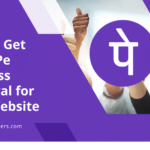
|
Getting your Trinity Audio player ready...
|
WordPress is a powerful and versatile platform for building and customizing websites. Understanding the basics of WordPress customization is essential for creating a unique and professional-looking website. Customization can include anything from changing the layout and design of your site to adding advanced functionality through plugins and custom code. One of the first steps in customizing your WordPress site is to familiarize yourself with the WordPress dashboard, where you can access all the tools and settings for customizing your site. From the dashboard, you can customize the appearance of your site, add new pages and posts, and install plugins to enhance the functionality of your site.
Another important aspect of WordPress customization is understanding the difference between themes and plugins. Themes control the overall design and layout of your site, while plugins add specific features and functionality. By understanding the role of themes and plugins, you can make informed decisions about how to customize your site to best meet your needs. Additionally, understanding the basics of HTML, CSS, and PHP can be beneficial for more advanced customization. These languages are used to control the appearance and functionality of your site, and having a basic understanding of them can help you make more advanced customizations to your WordPress site.
Key Takeaways
- WordPress customization allows you to personalize your website to fit your brand and style.
- Choosing the right theme is crucial for the overall look and functionality of your website.
- Customizing your website’s layout and design can help create a unique and user-friendly experience for your visitors.
- Utilizing plugins can add advanced functionality to your website without the need for custom coding.
- Incorporating custom code and CSS can further enhance the design and functionality of your website.
Choosing the Right Theme for Your Website
Choosing the right theme for your website is crucial for creating a professional and visually appealing site. There are thousands of WordPress themes available, so it’s important to consider your specific needs and preferences when selecting a theme. When choosing a theme, consider factors such as the layout, color scheme, and overall design aesthetic. It’s also important to consider the responsiveness of the theme, ensuring that it looks good and functions well on all devices, including desktops, tablets, and smartphones.
In addition to aesthetics, it’s important to consider the functionality of the theme. Some themes come with built-in features such as custom page templates, portfolio layouts, and e-commerce integration. Consider what features are important for your website and look for a theme that offers those functionalities. It’s also important to consider the level of support and updates provided by the theme developer. Choosing a theme from a reputable developer with a track record of providing regular updates and support can help ensure that your website remains secure and up-to-date.
Customizing Your Website’s Layout and Design
Once you’ve chosen a theme for your website, you can begin customizing the layout and design to better fit your brand and content. Most WordPress themes come with customization options that allow you to change colors, fonts, and other design elements without needing to write any code. These options can typically be found in the WordPress Customizer, which allows you to preview changes in real-time before making them live on your site.
For more advanced customization, you may need to use custom CSS or even modify the theme’s templates directly. Custom CSS allows you to override the theme’s default styles and make more specific design changes. This can be particularly useful for fine-tuning the appearance of your site to match your brand’s style guide. If you have experience with HTML, CSS, and PHP, you can also modify the theme’s templates to create custom page layouts or add new functionality to your site.
It’s important to remember that when customizing your website’s layout and design, you should always consider the user experience. Make sure that your site is easy to navigate and that important information is easily accessible. Pay attention to things like typography, spacing, and imagery to create a visually appealing and user-friendly website.
Utilizing Plugins for Advanced Functionality
| Plugin Name | Functionality | Compatibility | Downloads |
|---|---|---|---|
| Advanced Custom Fields | Customize content fields | WordPress | 1,000,000+ |
| Yoast SEO | Optimize for search engines | WordPress | 5,000,000+ |
| WooCommerce | E-commerce functionality | WordPress | 4,000,000+ |
WordPress plugins are an essential tool for adding advanced functionality to your website without needing to write custom code. There are thousands of plugins available for WordPress, offering features such as contact forms, e-commerce integration, SEO optimization, and much more. When choosing plugins for your website, it’s important to consider factors such as compatibility with your theme, regular updates from the plugin developer, and positive reviews from other users.
It’s also important to be mindful of the number of plugins you install on your site. While plugins can add valuable functionality, having too many plugins can slow down your site and potentially cause conflicts between different plugins. Before installing a new plugin, consider whether the functionality it offers is essential for your website. If possible, look for plugins that offer multiple features in one package to minimize the number of plugins on your site.
In addition to using pre-built plugins, you can also create custom plugins to add specific functionality tailored to your website’s needs. This can be particularly useful if you have unique requirements that aren’t met by existing plugins. Creating custom plugins does require some knowledge of PHP and WordPress development, but it can offer a high degree of flexibility and control over your website’s functionality.
Incorporating Custom Code and CSS
In addition to using pre-built themes and plugins, incorporating custom code and CSS can allow for more advanced customization of your WordPress website. Custom code can be used to add new features or modify existing functionality on your site. This might include creating custom page templates, adding new post types, or integrating third-party APIs. When adding custom code to your site, it’s important to do so in a way that doesn’t interfere with the core functionality of WordPress or any installed plugins.
Custom CSS is another powerful tool for customizing the appearance of your website. By writing custom CSS rules, you can override the default styles provided by your theme or plugins to create a unique design for your site. This might include changing colors, fonts, spacing, or layout elements to better match your brand’s visual identity.
When incorporating custom code and CSS into your WordPress website, it’s important to follow best practices for development. This includes using child themes when modifying existing themes, properly enqueueing scripts and styles, and testing changes in a development environment before making them live on your site.
Optimizing Your Website for SEO and Performance

Optimizing your WordPress website for search engines (SEO) and performance is essential for ensuring that your site ranks well in search results and provides a fast and smooth user experience. There are many ways to optimize your website for SEO, including using SEO-friendly URLs, optimizing meta tags and descriptions, creating high-quality content, and improving site speed.
In addition to SEO optimization, it’s important to optimize your website for performance. This includes things like optimizing images for the web, using caching plugins to improve load times, minimizing HTTP requests, and using a content delivery network (CDN) to serve assets from servers closer to your visitors.
Regularly monitoring your website’s performance using tools like Google PageSpeed Insights or GTmetrix can help identify areas for improvement. By optimizing your website for SEO and performance, you can ensure that your site is both discoverable by search engines and provides a fast and enjoyable experience for visitors.
Testing and Troubleshooting Your Customizations
After making customizations to your WordPress website, it’s important to thoroughly test them to ensure they work as intended. This might include testing different devices and browsers to ensure that your site looks good and functions well across various platforms. It’s also important to test any forms or interactive elements on your site to ensure they work correctly.
If you encounter any issues or unexpected behavior after making customizations, it’s important to troubleshoot these issues promptly. This might involve disabling plugins or custom code one by one to identify the source of the problem or seeking help from online forums or support communities.
Regularly backing up your website is also crucial in case something goes wrong during the customization process. This ensures that you can quickly restore your site to a previous state if needed.
In conclusion, understanding the basics of WordPress customization is essential for creating a professional and functional website. By choosing the right theme, customizing the layout and design, utilizing plugins for advanced functionality, incorporating custom code and CSS, optimizing for SEO and performance, and testing and troubleshooting customizations, you can create a unique and effective website that meets your specific needs. With careful planning and attention to detail, you can create a WordPress website that stands out from the crowd while providing an excellent user experience for visitors.
If you’re looking to boost your online presence through SEO, you may want to consider partnering with the best SEO company in Mohali. This article on unleashing the power of SEO discusses how choosing the right SEO company in India can significantly improve your website’s visibility and traffic. In addition to SEO, it’s also important to consider the design and development of your website, which is where WordPress customization comes into play. Whether you’re looking to create a new website or enhance an existing one, WordPress customization can help you achieve your online goals.
FAQs
What is WordPress customization?
WordPress customization refers to the process of modifying and personalizing a WordPress website to meet specific design, functionality, and branding requirements. This can include changing the layout, adding custom features, integrating third-party plugins, and more.
Why is WordPress customization important?
WordPress customization is important because it allows website owners to create a unique and tailored online presence that reflects their brand identity and meets their specific needs. It also enables them to stand out from the competition and provide a better user experience for their visitors.
What are the common elements of WordPress customization?
Common elements of WordPress customization include theme customization, plugin integration, custom post types, custom fields, widgets, menus, and CSS styling. These elements can be used to modify the appearance and functionality of a WordPress website.
How can I customize my WordPress website?
WordPress websites can be customized using various methods such as using pre-built themes and plugins, writing custom code in PHP, HTML, and CSS, and utilizing the WordPress Customizer tool. Additionally, hiring a professional web developer or agency can also help in achieving more complex customizations.
Are there any limitations to WordPress customization?
While WordPress offers a high degree of flexibility for customization, there are some limitations to consider. These may include constraints imposed by the chosen theme or plugins, technical limitations of the WordPress platform, and potential conflicts between different customizations. It’s important to carefully plan and test customizations to avoid these limitations.

























































